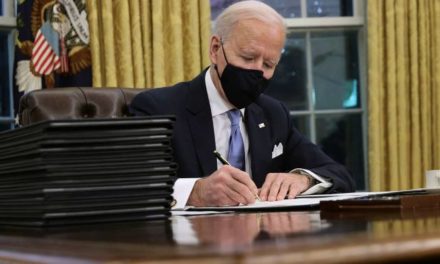On July 15, President Joe Biden issued an executive order establishing a Presidential Emergency Board which will delay any freight rail work stoppage for strike for 60 days effective July 18. There are 13 rail worker unions involved in the ongoing national contract negotiations. The Emergency Board has 30 days to try to find a solution satisfactory to both sides. If either side rejects it, a second 30-day “cooling off” period would begin in which the two sides try to reach a deal.
The Board, which is made up of a chair and two other members, all of whom were appointed by President Biden on July 17 include chair attorney Ira F. Jaffee, a lecturer in law at the George Washington University who has served as a neutral arbitrator in labor disputes since 1981. Jaffee has served on previous PEBs under Presidents George Bush and Barack Obama.
Also named to the PEB are attorney David P. Twomey and attorney Barbara C. Deinhardt. Twomey is a law professor at Boston College and an author of textbooks on labor, employment, and business law. He has served on previous PEBs under former president Ronald Reagan, George H. W. Bush, George W. Bush, Bill Clinton, and Barack Obama.
Deinhardt is an independent arbitrator who has chaired the New York State Employment Relations Board and State Workers’ Compensation Board. She served as a member of a previous PEB by President Obama. She was appointed to three successive terms on the Foreign Service Grievance Board by Secretaries of State Madeleine Albright, Colin Powell, and Condoleezza Rice.
The 13 unions involved in the national rail labor contract negotiations are: the American Train Dispatchers Association (ATDA); the Brotherhood of Locomotive Engineers and Trainmen / Teamsters Rail Conference (BLET); the Brotherhood of Maintenance of Way Employees Division (BMWED); the Brotherhood of Railroad Signalmen (BRS); the International Association of Machinists (IAM); the International Brotherhood of Boilermakers (IBB); the National Conference of Firemen & Oilers/SEIU (NCFO); the International Brotherhood of Electrical Workers (IBEW); the Transport Workers Union of America (TWU); the Transportation Communications Union / IAM (TCU), including TCU’s Brotherhood Railway Carmen Division (BRC); and the Transportation Division and Mechanical Division of the International Association of Sheet Metal, Air, Rail, and Transportation Workers (SMART–TD and SMART-MD, respectively).
Collectively, these Unions represent approximately 140,000 railroad workers covered by the various organizations’ national agreements and comprise 100 percent of the workforce who will be impacted by this round of negotiations.
“In a joint statement in response to the Executive Order, the 13 unions stated: ‘The Rail Unions remain united in their efforts, and are now working together in preparation of a unified case representing the best interests of all rail employees before the Presidential Emergency Board. Our unified case will clearly show that the Unions’ proposals are supported by current economic data and are more than warranted when compared to our memberships’ contribution to the record profits of the rail carriers.’”
The employees have been operating without a contract since 2019. The unions say that understaffing has created intolerable working conditions. Employment at the nation’s major railroads is down by more than 30,000 or about 20 percent since the last contract was ratified in 2017. As well, the union is seeking significant pay increases.
President of the BLET Dennis Pierce says the carriers have “only one goal in mind—profits without regard to health, safety, satisfaction or well-being of their employees, customers, or the nation at large.”
“To accomplish their goals, they furloughed or fired a third of their nationwide workforce, forcing the remaining employees to work more.”
The PEB will issue a report to President Biden with respect to the disputes within 30 days of its creation.






